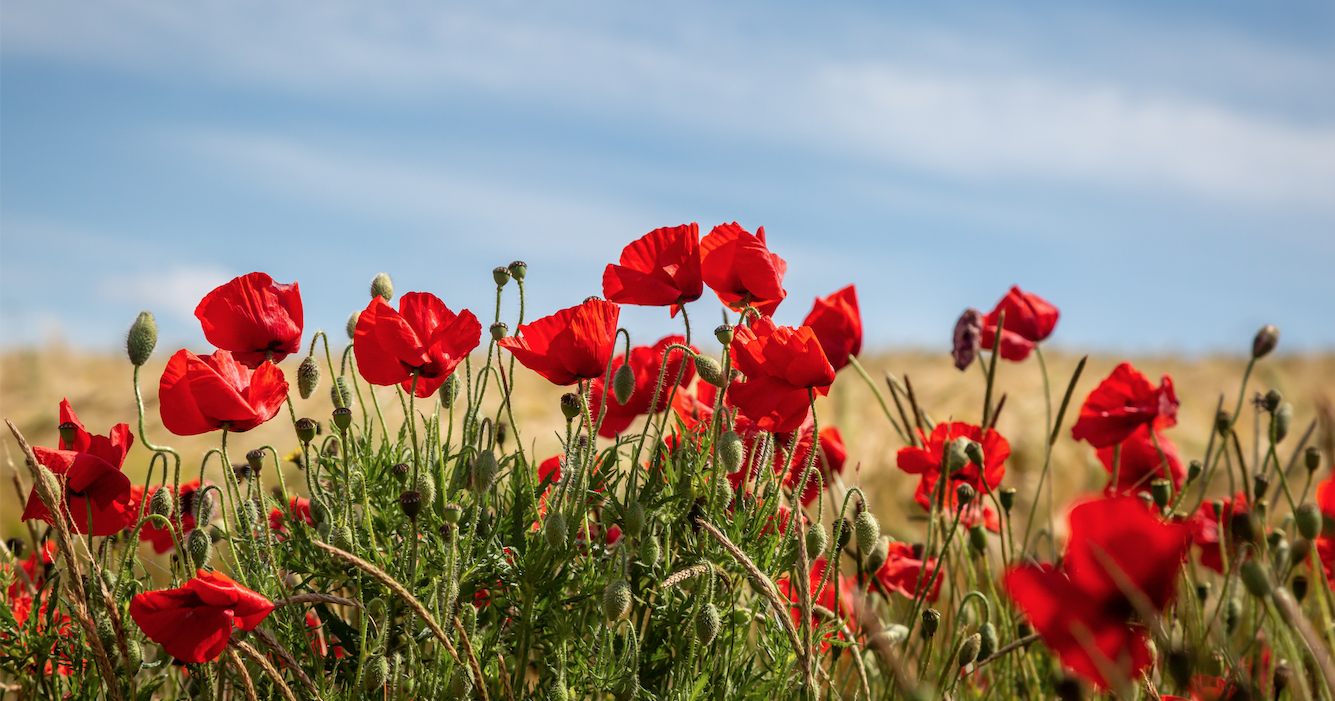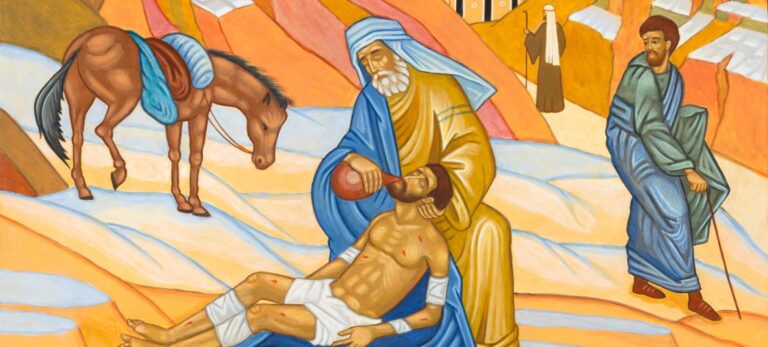
IN REMEMBRANCE

Wars not only destroy human lives; they destroy homes and heritages, they ravage fields, trees, lakes and soil. But the life that God bequeathed to all creation is stronger than death. And so it was that, the chalky, bomb-pummelled, soil of a burial ground in Northern Belgium was transformed into a lime-rich environment perfectly suited for the delicate, blood-red, poppy flower to burst forth in triumphant proclamation of the power of life in the face of death.
When Cain killed his brother, Abel, the Lord spoke to him saying,“The voice of your brother’s blood is crying to me from the ground.” (Genesis 4:10) Perhaps the blossoming poppies were another instance of the earth crying out to God for justice. And indeed, that cry, in a field in the region of Flanders, spoke to the heart of a Canadian military physician named John McCrae. Firsthand, he had witnessed the carnage of war. He knew the intentional sacrifices of young soldiers and the unintentional sacrifices of civilians. He had recently witnessed a close friend succumb to the violence of war. The blood-red poppies cried out to him: “People lie here! People who lived a few short days ago! People who felt dawn and watched glowing sunsets. People who loved and were loved.” The poppies spoke: “People lie here! Do not let their lives be forgotten! Do not let their lives be meaningless!” McCrae gave shape to the voice of the poppies in his poem – “In Flanders Fields.”
In war we see humanity at its worst, and, sometimes, at its most heroic. Remembrance Day is not a celebration of war. Rather, it is about recognizing its horrors and the scars it leaves on all whom it touches. It is about remembering the lives that were lost to defeat the enemies of peace when there appeared to be no other option but war. It is about giving thanks for their sacrifices and ensuring that they did not give their lives in vain. Which is why it must also be about the need to work tirelessly for peace and reconciliation in our homes, our faith communities, our cities and our world so that war becomes unnecessary. And, most certainly, it is about ensuring that those suffering from physical, psychological, and spiritual wounds borne of war are cared for with tenderness and compassion… and justice.
And so, we stand for a few moments every November 11th …
… in silence.
… in gratitude for sacrifices made.
… in remembrance of those who made them.
… in courageous commitment to justice.
… in hopeful longing for peace.
… listening for the cries of the flowers telling us that life has the last word!
Christine Way Skinner is a lay minister and author. She received a Bachelor of Arts in Theology degree from St. Francis Xavier University and a Master of Divinity from Harvard Divinity School. She is currently working on a Doctorate in Theology at St. Michael’s College in Toronto. Christine loves trying to find inclusive, compelling and creative ways to pass on the church’s 2000 year old traditions. She enjoys exploring the arts, gardening and engaging conversations. Christine’s numerous publications can be found and purchased here.


